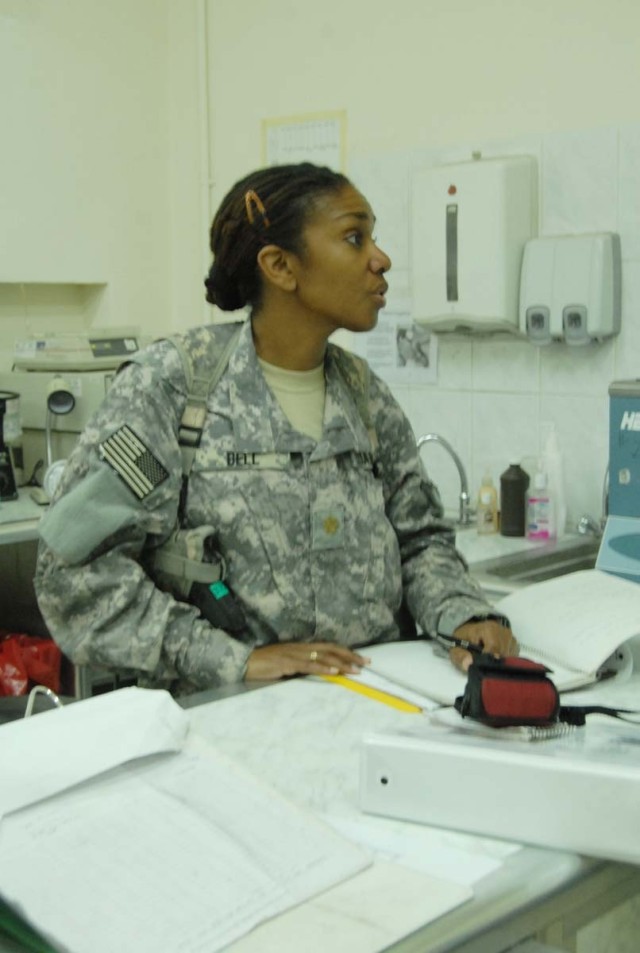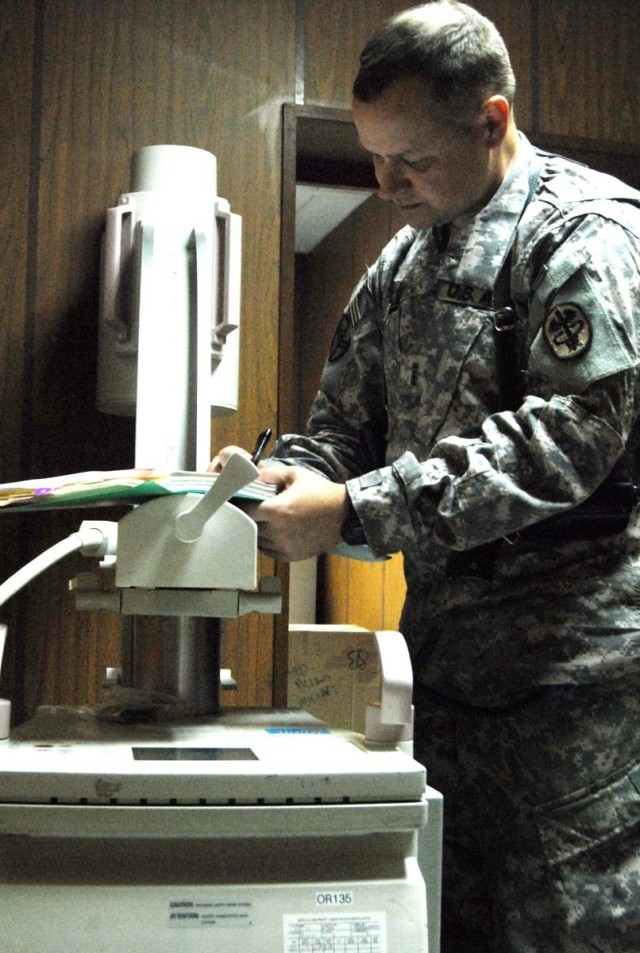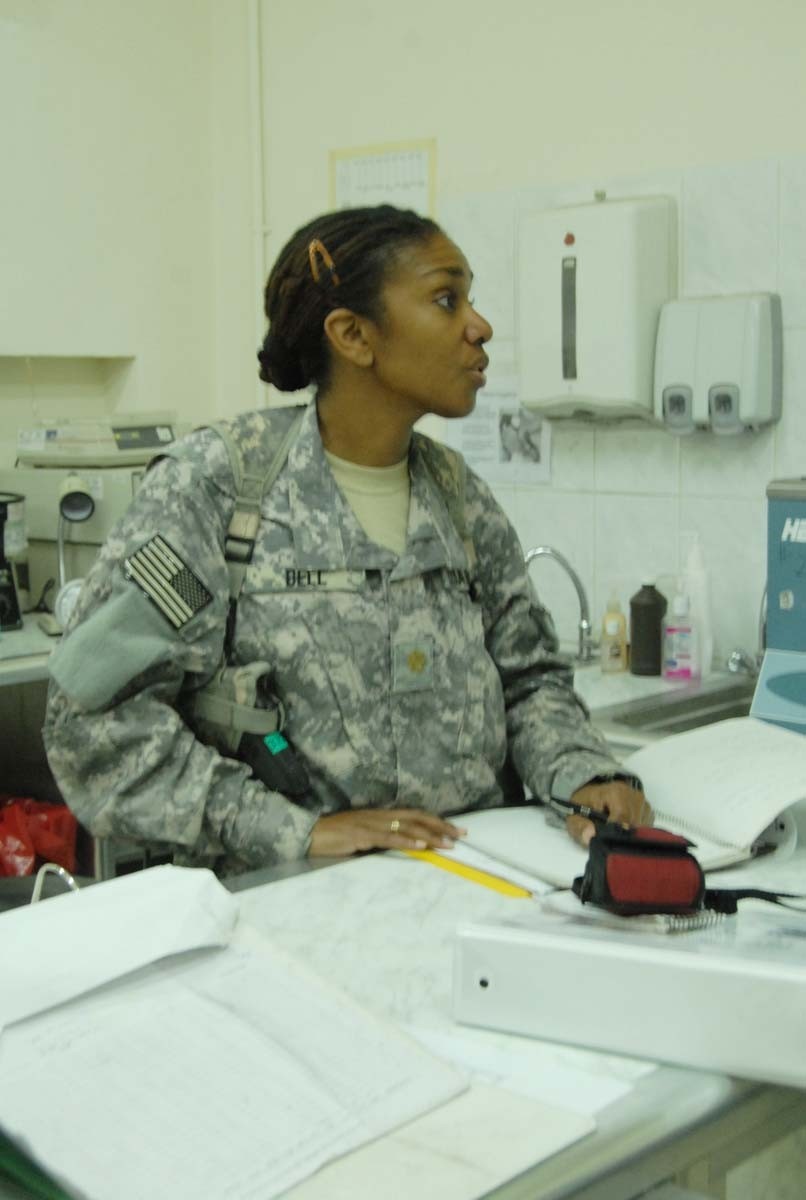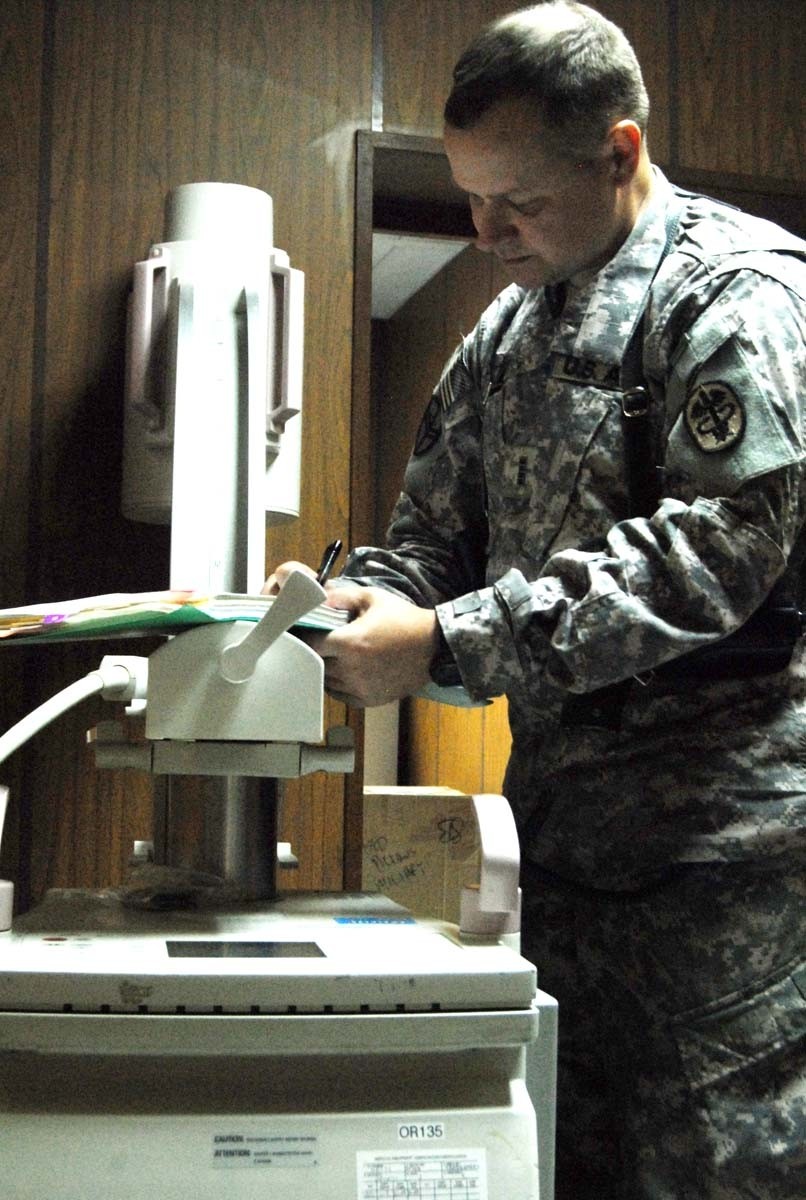A Joint Medical Technology Assessment and Review Team is currently in Iraq evaluating the equipment being used at Level III healthcare facilities in Iraq, Afghanistan and Kuwait.
A Level III healthcare facility is one which is responsible for evacuating patients from supported divisional and nondivisional units and providing resuscitative and hospital care.
The JMTART team's role is to ensure these facilities are getting the best equipment possible to accomplish their missions, said Chief Warrant Officer Kevin T. Curry, JMTART team leader. "We need to ensure the right mix of equipment in to these facilities to enhance patient care," said Maj. Carmen Bell, laboratory
officer, JMTART.
Areas of focus for the JMTART's evaluation are laboratory, operating room and imaging operations. The team is comprised of subject matter experts from the U.S. Army Medical Materiel Agency and the Air Force. Col. James Breitweser and Col. William Boisvert are consultants to the Surgeon General in radiology and laboratory management, respectively. Lt. Col. Prospero Donan's background is in operating room nursing and Bell's background is in laboratory operations. Elizabeth Poole is the information technology assessor. Curry and Air Force Chief Master Sgt. Tracy Wilhelm are biomedical maintenance technicians.
The JMTART was sent by U.S. Army Central Command to assist Army medicine is transitioning from an expeditionary force to a sustainment mission. They were brought out to offer an unbiased opinion on current capabilities and technical requirements and what it would take to transition the medical mission into the sustainment realm, he said.
"We're trying to identify what mission we need to be doing and find what technology and equipment we need to do it," he said. "In order to be able to provide quality care, the doctors and clinicians have the right equipment to do their job."
Curry sent out a questionnaire in March to gather as much information as possible on the capabilities and issues of healthcare centers overseas. The actual trip, Curry said, is to fill in the gaps and information and get a first hand look at the equipment and the quality of care.
While the team has only visited its first combat support hospital, Ibn Sina in the International Zone, it already has two significant issues its hoping to address while its here. The issues are standardization of the equipment acquisition system and getting a lifecycle management program in place which is specifically tailored for Iraq.
Bell said Army medicine has adapted well to the challenges of Iraq. However, Curry noted, the equipment longevity changes due to the heat and dust in this environment. A lifecycle management program will ensure equipment is replaced before it is beyond repair or obsolete, Curry said. "We need to practice proactive logistics, not reactive," he said.
The team will spend the next few weeks in Iraq, Afghanistan and Kuwait evaluating nine combat support hospitals. When it arrives home, the team will report its recommendations to CENTCOM to help healthcare providers in deployed areas to continue providing the best care possible to their patients.




Social Sharing